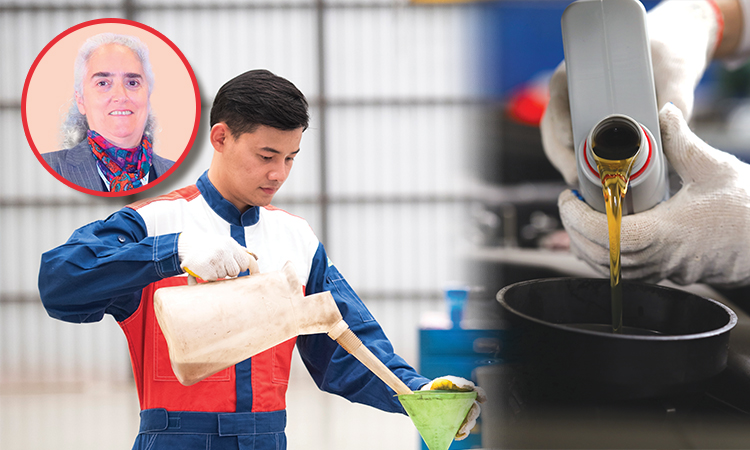Lubricants are an important part of our industry and our daily life. Therefore, it has great importance in terms of sustainability that oils are managed environmentally friendly with appropriate management systems without harming the environment. Life cycle analyzes (LCA) and waste hierarchy necessitate the prevention of waste oil generation, minimizing it at its source, and in cases where production is unavoidable, require it to be refined primarily for recovery. By refining processes, it is possible to obtain base oils with different properties.
Used lubricants (waste oils) are the largest liquid hazardous waste in the world. The collection and re-refining of waste oils are the real example of the zero-waste approach. In this way, fossil resource consumption will be reduced by 87%, while the formation of CO2 emissions that may cause climate change will be prevented by 71%.
All stages, from the selection of the most suitable waste oil types for refining to the collection and transportation of the waste oil, the selected recovery method, the marketing of the products, and the evaluation or disposal of the wastes resulting from recycling, should form an integrated business management that complements each other. Although the costs incurred as a result of including the collection and transportation costs in the operating expenses are high, it is not possible to talk about economic profitability in the facilities where the recovery efficiency and product quality are low.
Dear readers, lubricant producers, waste lubricant recyclers, collectors, valuable stakeholders of the sector; I am honored and happy to be with you and to share my knowledge and experience with you with my column titled “The Story of Lubricants” in the “Lubricant World” magazine, one of the most important publications of our industry. In our world, where environmental pollution is making it increasingly uninhabitable and resources are being depleted day by day, zero waste, recycling and circular economy are the major subjects agreed by all countries. Many policies are created in line with the zero-waste principle, national and international legislation and protocols are prepared and implemented. With the participation and support of all stakeholders through written visual presentations and events on various platforms, the issue is kept on the agenda and adopted as a state policy.
Thanks to the policies and regulations created in Türkiye, in line with the zero-waste principle, many studies have been carried out with the aim of providing added value with circular economy and efficient use of resources, and new researches continue. As a person who has spent years on this issue, which is very important for all humanity, I aim to raise awareness with my columns and sense of mission, and to keep the issue on the agenda by expressing the deficiencies, problems, truths, mistakes and wrongs that are known to be true. I would also like to thank Mr. Fatih Çavuşoğlu, the Editor of “Lubricant World” magazine, who kindly gave me this opportunity to share my thoughts.
With my columns titled “The Story of Lubricants”, I will try to tell and guide by sharing information on the points that I consider important about lubricants and waste oils, production, usage, recycling, technology, illegal practices, environmental effects, best practices and life cycle in Türkiye and the world. I will try to explain with all aspects the issue by approaching with a different perspective the processes of recovery and reintegration into the economy.













